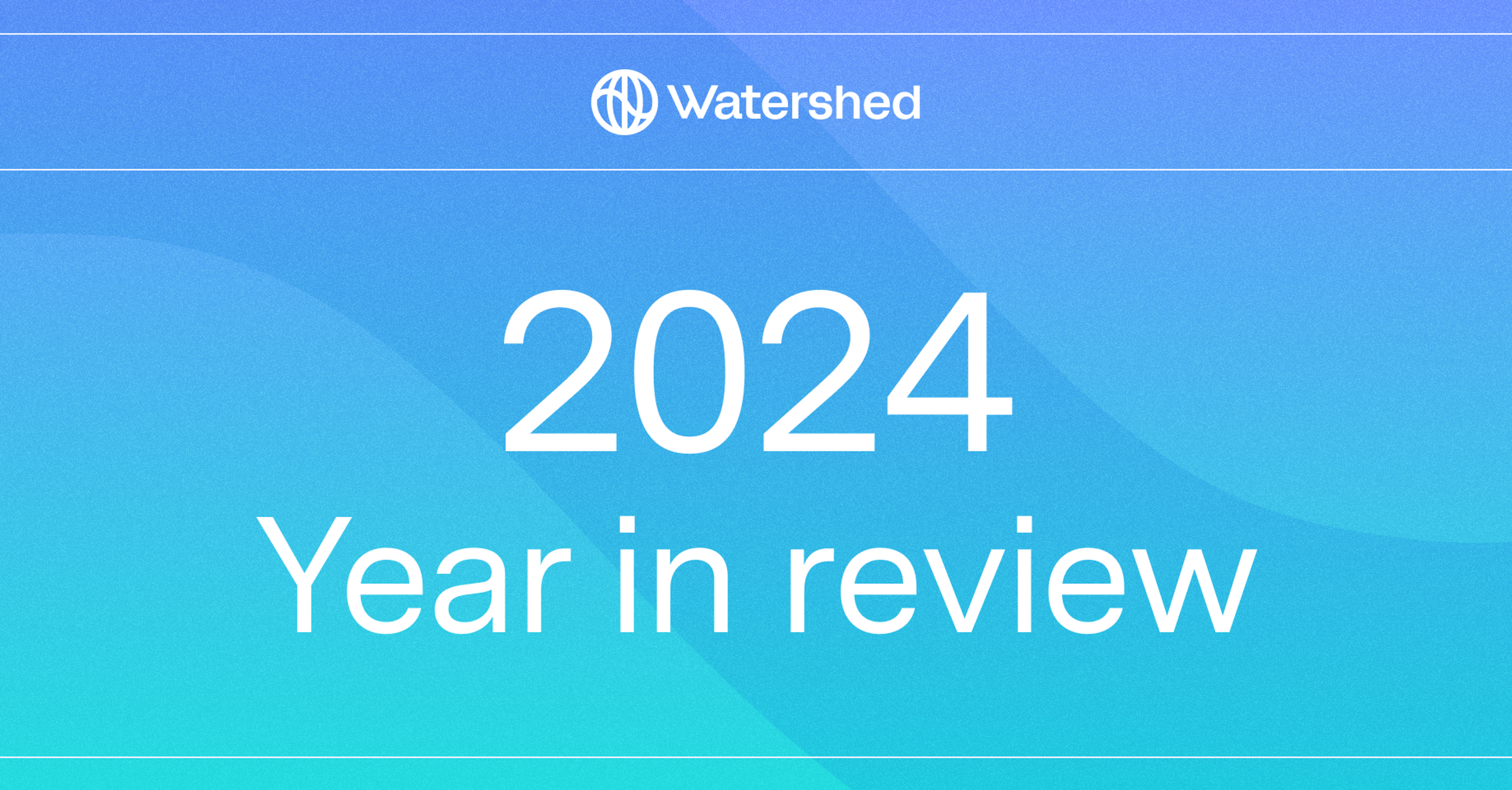In this edition: Canada pauses work on new climate disclosure rules. The UK prepares to consult on ISSB alignment, transition plans, and assurance. And in the EU, the institutions have begun negotiating on the substantive changes to the CSRD and CSDDD, with EFRAG laying the groundwork for simplified reporting standards.
Our first story is the start of formal negotiations on the future shape of the CSRD. As we wrote in a recent post, there’s a long road ahead for these negotiations, and the details will matter, but our advice for corporate sustainability leaders is not to fixate on them just yet. Instead, watch for three broader signals:
- Are negotiations progressing at speed? Companies are seeking clarity on what rules will apply and when. With an extensive legislative process ahead, continued momentum is vital.
- Where is the parliamentary majority forming? A broadly centrist von der Leyen majority would indicate more moderate changes to the Commission’s proposal. A majority where the EPP looks to the right would indicate more substantial amendments in the Parliament’s version of the text.
- Are member states on track with transposition of the reporting deadline delays? As Brussels negotiates on the substance, governments need to complete transposition of both the new "stop the clock" directive and, for some, the original CSRD itself—all before year-end.
For companies preparing to comply with California's CCDAA reporting requirements, be sure to register for our policy briefing webinar on May 8th. We’ll have future briefings on ISSB and OSFI.
European Union
EU institutions begin negotiations on changes to the CSRD
With reporting delays now agreed, EU institutions have begun negotiating the broader set of proposed changes to the CSRD and CS3D under the sustainability Omnibus package. In the European Parliament, a first exchange of views has taken place among key MEPs. The Parliament’s lead negotiator (or "rapporteur") Jörgen Warborn suggested aligning the scope thresholds of CSRD and CS3D and raising them above the new level proposed by the EU Commission—an early signal that scope and proportionality will continue to be central to the debate. In parallel, the European Council, under the Polish Presidency (the Member State currently leading negotiations), has published its first compromise text, reflecting initial Member State feedback. One initial suggestion on CSRD is an optional Member State exemption for wave 1 companies with 500–999 employees, allowing them to skip FY2026 reporting if they are due to eventually fall out of scope under the proposed new thresholds—a move that could reduce short-term reporting obligations for a narrow segment of Wave 1 companies.
Separately, EFRAG has set out its timeline for producing its suggested simplifications to the European Sustainability Reporting Standards (ESRS). Between now and mid-May, EFRAG is gathering input on where simplification is most needed, with a focus on usability, datapoint volume, and practical challenges from the first year of ESRS application. Draft changes will be prepared and approved internally from May through July, followed by a public consultation in August. Final recommendations are due to the Commission by the end of October, but the plan means we’ll get a look at EFRAG’s initial thinking in the summer.
Key takeaway for sustainability leaders:
Negotiations are in motion, but for now we only have initial thinking. Focus on the pace of talks, emerging political alignments, and how member states implement what’s already agreed.
Canada
Canada pauses climate and diversity disclosure initiative
In April 2025, the Canadian Securities Administrators (CSA) announced a pause on work to develop new mandatory climate-related and diversity-related disclosure requirements. The planned climate disclosures were intended to align with the Canadian Sustainability Standards Board (CSSB) standards, which closely track the ISSB framework. Citing global economic and geopolitical shifts, the CSA stated it will revisit both initiatives but gave no new timeline. For now, companies must rely on voluntary CSSB disclosures and existing requirements to report material climate risks under securities law.
The CSA’s announcement does not appear to alter the current expectations for federally regulated financial institutions under the Office of the Superintendent of Financial Institutions’ (OSFI) Guideline B-15: Climate Risk Management. OSFI reaffirmed updated timelines in March 2025, including delayed scope 3 disclosure requirements. No public statements have suggested a change to OSFI’s approach following the CSA’s decision, but developments will be monitored.
Key takeaway for sustainability leaders:
At the time of writing, Mark Carney has just won the Canadian general election, and the formulation of the new government could influence the nature of this regulatory pause. Companies should continue preparing for climate disclosures based on CSSB and ISSB standards while we wait for more detail.
United Kingdom
UK set to consult on upgraded sustainability disclosure requirements
The UK government is preparing to launch a package of three consultations on upgrades to mandatory corporate climate reporting. The consultations will cover:
- The adoption of new UK Sustainability Reporting Standards (UK SRS) aligned with the ISSB framework.
- A new requirement for companies to disclose climate transition plans.
- Assurance standards for sustainability reporting.
The requirement for transition plans was a commitment in the Labour Party’s 2024 election manifesto, aiming to mandate UK-regulated financial institutions and FTSE 100 companies to develop and implement credible transition plans that align with the 1.5°C goal of the Paris Agreement. While the exact timing of these consultations is yet to be confirmed, they are anticipated imminently. Separately, the government plans to consult on broader reforms to reduce the overall corporate reporting burden, which may intersect with the aforementioned consultations, potentially influencing their scope and implementation.
Government officials have argued that the UK’s measured approach—particularly its choice to align with the ISSB rather than CSRD—is designed to provide a competitive advantage for companies. They suggest that taking more time to implement sustainability reporting requirements will allow companies to adjust gradually, maintain high-quality disclosures, and avoid unnecessary administrative complexity. Meanwhile, Prime Minister Keir Starmer recently pledged to accelerate the UK’s net zero drive, positioning renewable energy as critical to economic strength and security.
Key takeaway for sustainability leaders:
Companies preparing for UK reporting requirements should stay focused on ISSB alignment and transition planning. The details will matter. For example: will the government still ask for 1.5°C alignment in transition plans in a world where that limit has already been breached?
However, the overall direction of travel is clear: steady expansion of disclosure expectations, with an emphasis on usability, investor confidence, and minimizing unnecessary reporting burden.












